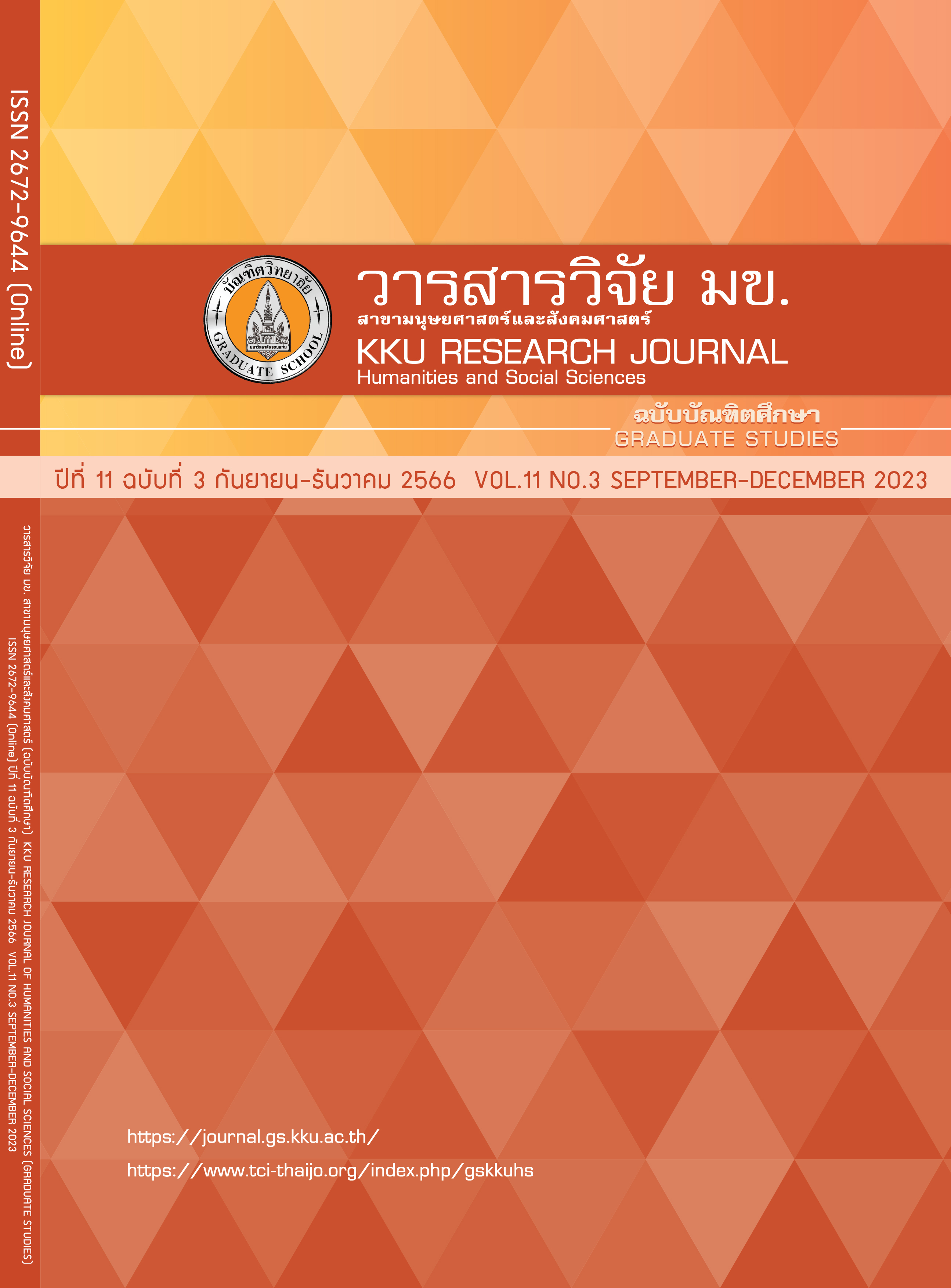Administrators in Era of Change to Early Childhood Teachers to Provide Active Learning Experience Focusing on Executive Functions to Achieve Early Childhood’s Success
Keywords:
Administrators, Competencies, Early childhood teachersAbstract
Administrators in the era of change develop the competencies of the early childhood teachers to provide an active learning experience focusing on executive functions for life management that reach the success for early childhood children. This is the management of early childhood educational institutions that emphasizes on quality or outcomes that actually occur to the early childhood. On a systematic management approach, administrators have management steps to develop early childhood teachers' competencies to achieve the policies and plans in their duties as follows, or the basic skills the teachers are ready to learn and develop themselves within the framework of personnel administration of which the administrators really recognize teachers’ competencies consistent with working policies and plans as follows: 1) Needs analysis; 2) Curriculum design; 3) Development operations; 4) Follow-up supervision; and 5) Evaluation with appropriate techniques, methods, and processes to promote appropriate basic competencies for the early childhood students in the era of change, and these competencies include 1) promoting child development; 2) curriculum and learning management; 3) positive interaction; 4) professional development; 5) classroom management; 6) analysis and research and development; and 7) community servicing competencies. There are 6 techniques for developing early childhood teachers' competencies as follows: 1) doing workshops; 2) having mentors to give working advice; 3) field-trip study; 4) self-access learning; 5) learning from practice; and 6) professional learning communities. Consequently, according to the management system of the administrators in the era of change to the development of the early childhood teachers’ competencies to be effective professional leaders in early childhood development, early childhood teachers are important people receive the initial development of necessary competencies since the performance of duties as an early childhood teachers require ability or performance in working as an effective factors that drive the teachers to have good performance to meet the working criteria of the responsible duties. If educational institution administrators realize the importance with understanding and are ready to develop early childhood teachers to change the entire system together, the administration to develop early childhood teachers’ competencies in organizing active learning experiences that emphasize executive functions for life management towards the success of early childhood can enable school administrators, early childhood teachers, and early childhood children to develop lifelong learning skills effectively.
References
Hanmethee S. Handbook for developing brain skills EF Executive Functions for early childhood teachers. 4th ed. Bangkok: Matichon Public Company; 2018.
Iamprasert P, Kasornphaet P, Bunthima R. Competency in organizing learning experiences of early childhood teachers. SWU Educational Services Journal, Bangkok 2013; 10(1): 1-10. Thai.
Ministry of Education. National Standard for Early Childhood Care, Development and Education, Special Education Center (Internet). 2018. Available from https://apps.hpc.go.th
Miller R. Making Connections to the World: some Thoughts on Holistic Curriculum. Brandon, VT: Foundation for Educational Renewal; 2000.
Oudta A, Wannasri J. A Model of Competency Development for Early Childhood Teacher Under Local Administrative Organization. Journal of Education Naresuan University. 2022; 20(4): 305-316. Thai.
Office of Academic and Educational Standards Office of the Basic Education Commission, Ministry of Education. Guidelines for organizing active learning (Active Learning) at the early childhood level. Bangkok: Chamchum Printing House; 2022. Thai.
Panich W. Holistic learning. Towards change. (Internet). 2018. Available from: https://www.arsomsilp. ac.th/lifeislearning-vichan
Sanamthong E. Human resource development: development guidelines for organizational
success. Kasem Bundit Journal. 2019; 20(1): 64-77. Thai.
Sutthiwong B. Human resource management. Bangkok: Kpon; 2007. Thai.
Seefeldt C, Barbour N. Early Childhood Education: An Introduction. Ohio: Charles E. Merrill Publishing; 1998.
Sanhachawee A. Brain learning theory for parents Teachers and administrators. Bangkok: Mitsamphan Printing House; 2018.
The Council of Teachers. Complete research report on Teacher Professional Standards elementary education. Bangkok: Prikwarn Graphic; 2011. Thai.
Thanopajai S. Development of a supervision model to develop early childhood teachers' competencies in organizing experiences. (Internet). 2022. Available from: https://www.kroobannok.com/news_file/p15664671758.pdf.
Upakarn D, Yanachai O. To enhance the learning development of early childhood children, which principle should be used "Brain-based learning" or "executive thinking". Journal of Humanities, Social Sciences and Arts. 2018; 11(1): 1635. Thai.
Yothasing A. Development of a Training Curriculum Based on the Concept of Blended Learning for Enhancing Primary School Teacher’s Competency of Student-Centered Assessment. Bangkok: Silpakorn Educational Research Journal. 2016; 8(2): 270-284. Thai.
Downloads
Published
How to Cite
Issue
Section
License

This work is licensed under a Creative Commons Attribution-NonCommercial-NoDerivatives 4.0 International License.




